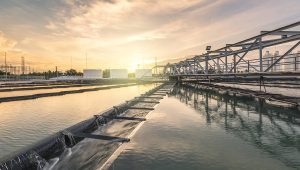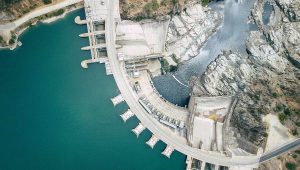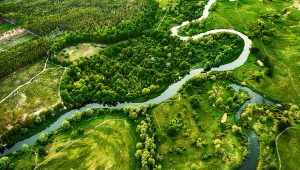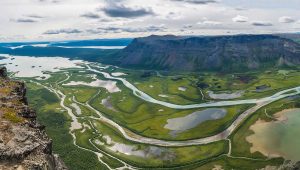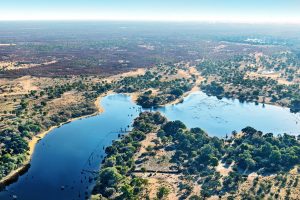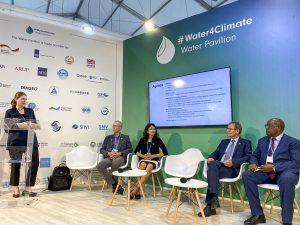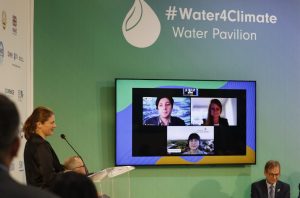Unpacking freshwater’s role: Climate mitigation measures in freshwater systems
Freshwater ecosystems such as wetlands, rivers, and lakes are intimately linked to climate mitigation since aquatic environments can act as both greenhouse gas sinks and sources. For example, wetlands can store large amounts of carbon, but when drained they can risk releasing greenhouse gases instead.
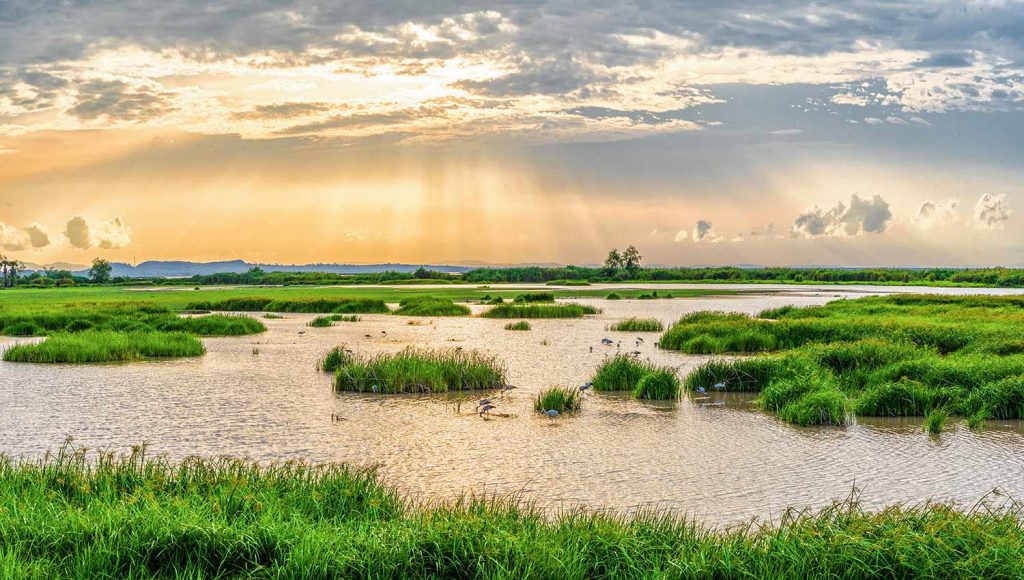
What is the role of freshwater in climate change mitigation? This spring Swedish Water House will host a webinar series diving into the chapters of the recently launched report “The essential drop to reach Net-Zero: Unpacking Freshwater’s Role in Climate Change Mitigation”.
In this webinar we will present the findings from the chapter “Mitigation measures in freshwater ecosystems”, and explore the mitigation potential and water-related risks of inland freshwater systems and freshwater-dependent coastal and marine systems.
Watch the recording
You need to enable cookies in order to see the video below. Or watch it directly on SIWI’s Youtbe channel.
Agenda
- Welcoming notes – Moderator Malin Wennerholm, Stockholm International Water Institute
- Opening remarks – Ingrid Timboe, AGWA
- Chapter presentation – Nureen Faiza Anisha, Oregon State University & Ritesh Kumar, Wetlands International
- Water insights from Nationally Determined Contributions – David Hebart-Coleman, Stockholm International Water Institute
- Case studies:
- Rewetting peatlands for greenhouse gas mitigation – Åsa Kasimir, University of Gothenburg
- Watersheds management is critical for climate mitigation – Gail Chmura, McGill University
Speakers’ profiles
Malin Lundberg Ingemarsson is Programme Manager at SIWI and is working on the links between water, landscapes, biodiversity and climate change. More recently, she has coordinated the work with the report “The essential drop to reach Net-Zero: Unpacking Freshwater’s Role in Climate Change Mitigation” and authored the chapter on climate mitigation measures for land systems.
Ingrid Timboe is the Policy Director at AGWA. Ingrid is involved in all things policy at AGWA, coordinating AGWA Policy Group communications, producing the AGWA Policy Newsletter, helping prepare policy briefs and white papers. In addition, she is involved in the Marrakech Partnership and Adaptation Committee, coordinating AGWA’s work with the UNFCCC. She co-hosts the ClimateReady podcast with Alex Mauroner.
David Hebart-Coleman is an environmental planning and policy expert, with over 15 years of experience in environmental policy development. His professional background is in local and regional government in New Zealand. Recently, he provided water resources and climate change adaptation services as an expert within the African Water Facility in Cote D’Ivoire.
Gail Chmura is a Professor in the Geography Department of McGill University, Montreal, Canada. Her research focuses on the resilience of salt marshes in the face of climate and land use change as well as trade-offs in ecosystem services with wetland transformation and creation, particularly those associated with climate feedbacks. Besides this SIWI chapter “Mitigation Measures in Freshwater Ecosystems” she has co-authored IPCC guidelines on preparing inventories of GHG emissions of wetlands and assessments of Natural Climate Solutions for Canada.
Nureen Faizia Anisha is a doctoral candidate from Oregon State University currently working on freshwater wetland systems with focus on systems ecology and hydroclimate. She has worked extensively in the field of climate change adaptation in the water sector, integrated environmental systems, watershed management, riparian and wetland system dynamics and coupled human-natural systems.
Ritesh Kumar heads Wetlands International South Asia. Dr Kumar is a practitioner with extensive experience nationally and internationally on integrated wetland management. He has participated in several global assessments, including the Ramsar Convention’s Global Wetlands Outlook, the IPBES assessment on values and nexus and the UNEP led Global Peatlands Initiative. Over the last two decades, he has coordinated multidisciplinary projects on wetlands assessment, ecosystem services evaluation, water management, sustainable livelihoods, disaster risk reduction and climate change adaptation.
Åsa Kasimir is a biologist and associate professor in physical geography. Her research focuses on biogenic greenhouse gases, soil processes and flux measurements. Aims are to contribute to national reporting on GHG’s and guidance for management actions.
Malin Wennerholm is programme officer at SIWI Swedish Water House. She coordinates the SWH seminars and webinars, and has arranged sessions on a wide range of water related topics, such as water resilient cities och water smart agriculture. She is lead of the SWH annual World Water Day seminar in Stockholm, Sweden. Malin also contributes to SIWIs work on water for resilient landscapes and forests.
The UN 2023 Water Conference, which takes place in March this year, is an opportune moment to highlight the vital role of water in climate mitigation. Freshwater is a finite resource exposed to overexploitation and is being put under increasing pressure from the changing climate.
The report “The essential drop to reach Net-Zero: Unpacking Freshwater’s Role in Climate Change Mitigation” is the first ever summary showing the connections between freshwater and climate mitigation, and how they are inextricably linked. The report shows that water is much more important in mitigating climate change than previously understood. By considering freshwater in climate mitigation measures, water risks can be avoided, and win-win solutions for water and climate can be used to their fullest potential.
The report is developed in joint effort by Stockholm International Water Institute (SIWI), Federal Ministry of Economic Cooperation and Development of Germany (BMZ), German Corporation for International Cooperation (GIZ), The Potsdam Institute for Climate Impact Research (PIK), United Nations Development Programme (UNDP) and Stockholm Resilience Centre (SRC).
Unpacking freshwater’s role
The report 'The essential drop to reach Net-Zero: Unpacking Freshwater's Role in Climate Change Mitigation' shows a new way of thinking about climate change that can lead to more effective solutions.
Explore the chapters

